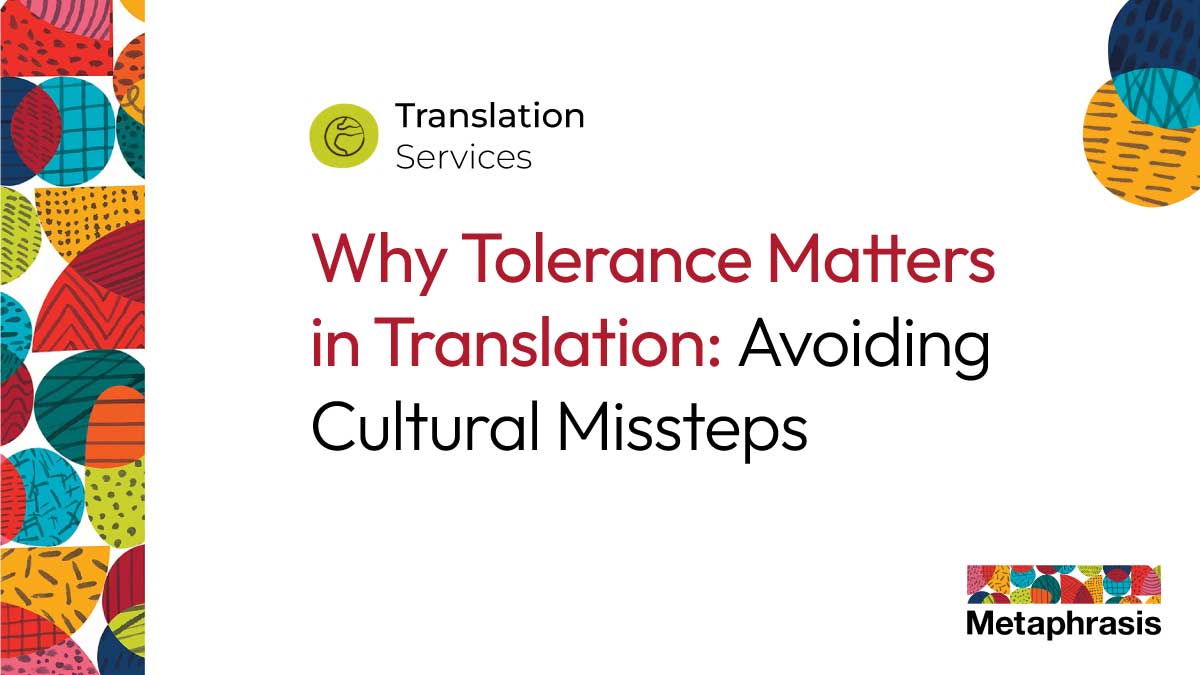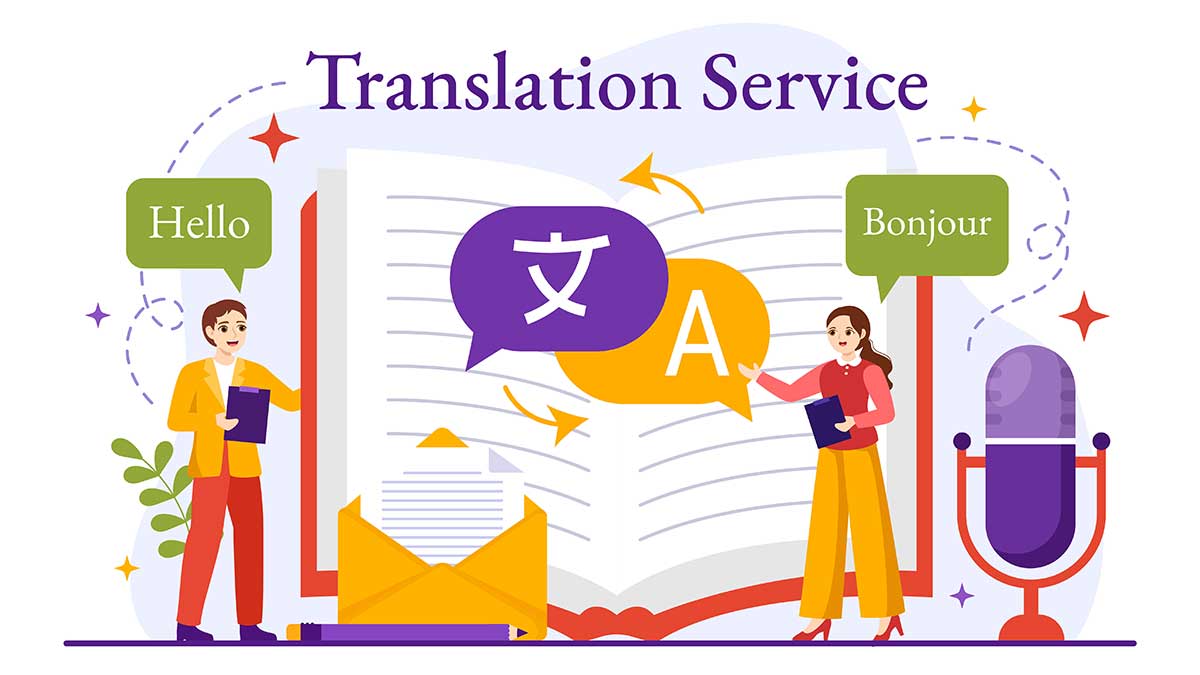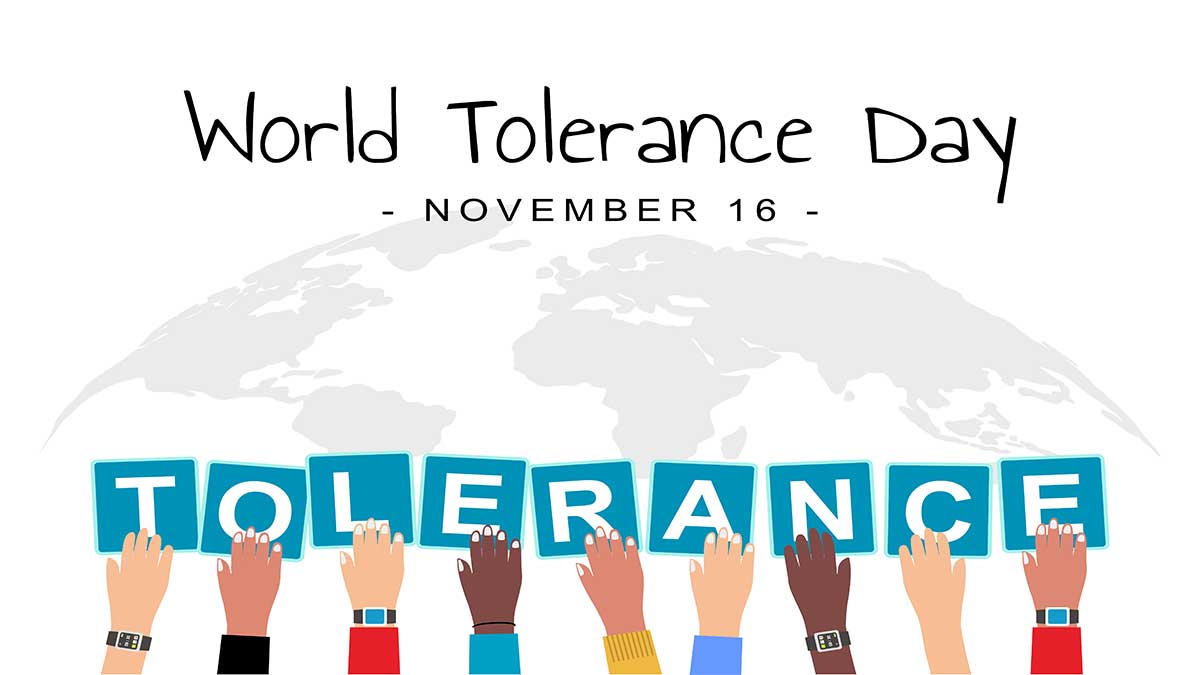
Why Tolerance Matters in Translation: Avoiding Cultural Missteps
In a world where global communication connects people across borders every second, tolerance has become more than a social virtue — it’s a professional necessity. In the field of translation and interpretation, tolerance serves as the invisible thread that weaves understanding between cultures, communities, and individuals. For Metaphrasis, a trusted provider of Professional Translation Services, this principle sits at the heart of every project we take on. When language is approached without sensitivity or cultural understanding, even the most precise translation can lose its true impact the ability to connect people authentically and foster genuine understanding.
Tolerance Matters in Translation: The Foundation of Effective Translation
At its core, translation is not just about words. It’s about ideas, tone, and cultural context. Translators often navigate layers of meaning shaped by history, identity, and emotion. Without tolerance the ability to appreciate and respect those differences a message can easily lose its essence.
For example, a phrase that feels neutral in English might carry unintended connotations in another culture. A well-intentioned healthcare pamphlet or corporate message could inadvertently alienate its audience if translated without cultural awareness. This is why tolerance is vital: it allows translators to approach every language and culture with an open mind, free from assumptions or bias.
At Metaphrasis, our translators are trained not only to deliver precise translations but to interpret messages through the lens of empathy and cultural intelligence. We believe that understanding others begins with listening and that’s the first step toward tolerance.
Avoiding Cultural Missteps Through Sensitivity
Cultural missteps in translation are not always dramatic; sometimes, they’re subtle a misplaced idiom, a tone that feels too informal, or a gesture of politeness that doesn’t translate well. Yet these small details can significantly affect how communication is received.
Imagine a global marketing campaign where a slogan meant to inspire comes across as insensitive in another language, or a healthcare document that overlooks a patient’s cultural beliefs. These misinterpretations can create barriers instead of breaking them down.
Professional translators play a key role in preventing these misunderstandings. They don’t just translate words; they interpret intent, tone, and cultural meaning. Our Translation Services team takes a consultative approach, reviewing content not only for accuracy but also for cultural resonance. We work closely with clients to understand their audiences, ensuring every word reflects the values and expectations of the people it’s meant to reach.
Tolerance allows this process to flourish. When a translator approaches a project with respect for cultural nuance, they’re not only avoiding errors they’re helping preserve dignity and authenticity in every language.

Building Understanding Through Professional Translation Services
In today’s multicultural world, Professional Translation Services do more than facilitate communication; they promote inclusion. When every person, regardless of their language, has access to accurate and culturally appropriate information, it strengthens trust and equality.
For example, in healthcare one of the sectors Metaphrasis proudly serves clear and compassionate communication can directly affect outcomes. Patients with limited English proficiency depend on translated materials and interpreters to understand diagnoses, treatment plans, and consent forms. When those materials are translated with tolerance and understanding, patients feel seen, respected, and empowered to make informed decisions.
Similarly, in education, government, and business, translation grounded in tolerance builds stronger relationships and fosters collaboration. It ensures that no one is excluded from critical information or opportunities because of language barriers.
Tolerance as a Professional Standard
For a Translation Service provider, tolerance isn’t just a value it’s a professional standard. Translators and interpreters act as cultural mediators, bridging not only linguistic gaps but also emotional and ethical ones. This means remaining objective, empathetic, and respectful of every culture represented in their work.
At Metaphrasis, this commitment is embedded in our company culture. From healthcare to legal and corporate projects, we approach each assignment with a mindset of humility and respect. We understand that every language carries its own rhythm, wisdom, and worldview and honoring that is what makes our work meaningful.
Embracing Tolerance on a Global Scale

As the world marks International Day for Tolerance 2025, it’s worth reflecting on how language professionals contribute to this mission every day. Every translated sentence, every interpreted conversation, and every multilingual document represents a moment of connection a chance to replace misunderstanding with empathy.
In translation, tolerance isn’t passive; it’s active. It’s the willingness to learn, adapt, and see the world through someone else’s eyes. For Metaphrasis, that’s not just what we do it’s who we are.
In Closing
Tolerance matters in translation because it transforms communication from a transaction into an act of understanding. It reminds us that language is not only a tool for information but a bridge between human experiences.
At Metaphrasis, we believe that by practicing tolerance in every translation, we help build a world where everyone’s voice is heard clearly, respectfully, and without barriers.
